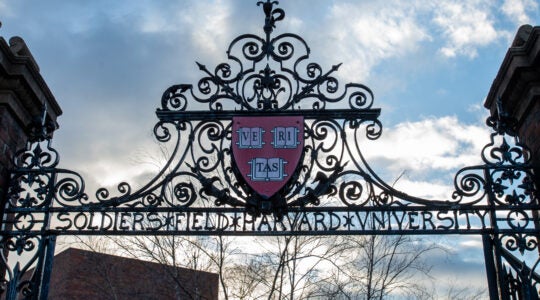WASHINGTON (JTA) — The controversy over building in Jerusalem could delay peace talks by a year, Prime Minister Benjamin Netanyahu was reported to say in a message to the U.S. leadership.
"For 42 years we built in the Jewish neighborhoods of Jerusalem," Netanyahu’s office quoted him as saying in a meeting Tuesday amorning with the U.S. House of Representatives leadership. "No one ever argued. These are Jewish neighborhoods. They have never inconvenienced Arabs. It’s never been an issue for us or for the United States or for the Palestinians. The Palestinians have raised a new demand. If this demand takes, we may lose another year."
Netanyahu has also met with administration officials, including Vice President Joe Biden and Secretary of State Hillary Rodham Clinton, as well as President Obama, whom he is due to meet this evening. A large Israeli delegation is in Washington to smooth over tensions that erupted two weeks ago when Israel announced a major housing start in a fervently Orthodox neighborhood in eastern Jerusalem during a visit by Biden aimed at underscoring close U.S.-Israel ties and restarting the peace process.
Palestinians withdrew from planned talks because of the announcement; Netanyahu said their pretext was disingenuous. "We must not let illogical or unreasonable demands trap us," he said. "This would draw out the diplomatic negotiations."
Palestinian and Arab complaints about Israeli building in eastern Jerusalem date back decades. U.S. administrations have in recent years refrained from complaining about building in "new" Jewish neighborhoods that are likely to remain Israeli as part of a final status agreement. Ramat Shlomo, the neighborhood whose new building proposal sparked the tensions, is such a neighborhood.
However, U.S. administrations have consistently complained about building for Jews in Arab neighborhoods.
JTA has documented Jewish history in real-time for over a century. Keep our journalism strong by joining us in supporting independent, award-winning reporting.





